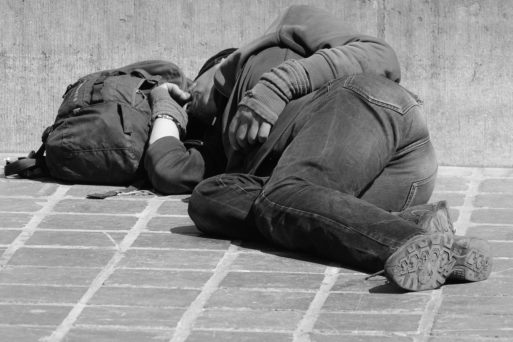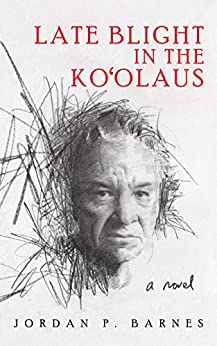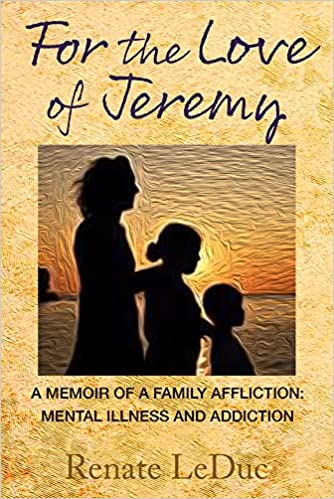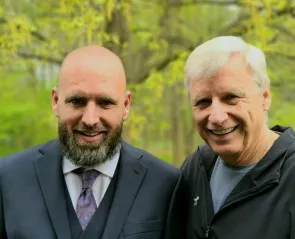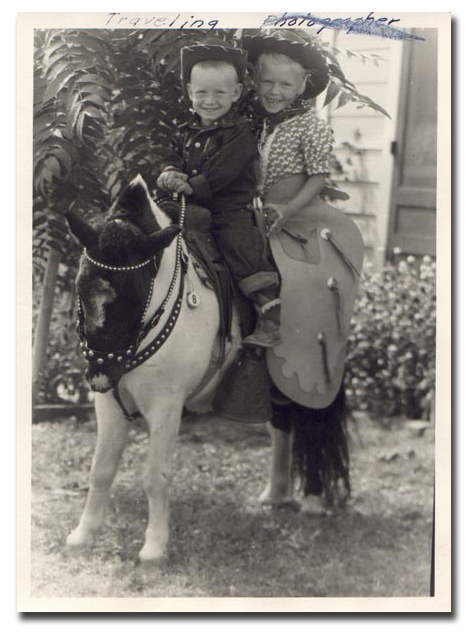
My sister and me riding a pony as children. (Photo courtesy of Pete Earley.)
(2-13-23) My only sister, Alice, died on this date fifty-seven years ago after being struck by an automobile. I was 14 years-old at the time and it was my first experience with death. Nineteen years after her death, I awoke one night calling out her name. I realized that I had repressed most of my memories about Alice because her death was so painful. My good friend, Walt Harrington, who was an editor at the Washington Post, suggested I return to Colorado and investigate my own sister’s death as a reporter. The Post published my account in 1986. I am posting it today in her memory. With the passage of time, the hurt and memories fade, but in your heart, you still feel the loss.)
Missing Alice: The Story of My Sister
By Pete Earley for The Washington Post
Midway across Ohio, the man beside me on the DC-10 asked where I was going.
“Fowler, Colorado. A little town of about a thousand people near Pueblo.”
“Why would anyone go to Foouuller?” he asked, grinning as he exaggerated the name.
“A death. My sister.”
“Sorry,” he mumbled and turned away.
I was relieved. I didn’t have to explain that my sister had been dead 19 years. Alice was killed when I was 14. She was two years older and we had been inseparable as children.
I couldn’t talk about her death at first. My voice would deepen, my eyes would fill with tears. My parents would cry at the mention of her name, and we rarely spoke of her. Then it seemed too late.
After I left home, my mother would phone me each February 13 and remind me that it was my sister’s birthday. Year after year, I would forget — and find myself angry with my mother’s insistent reminders. It was just before last Christmas, as I shuffled boxes in the basement, that I ran across Alice’s picture and clipping describing her death.
“A tragic accident Tuesday, June 14, about 7:05 p.m., took the life of Alice Lee Earley…” I sat down on the concrete floor, closed my eyes and tried to picture her. I couldn’t. I tried to focus more sharply. Alice eating Sugar Pops beside me at the breakfast table. Alice washing the green Ford Falcon. Alice stepping on my toes while singing in Church.
The events I recalled vividly. Alice’s face I recalled not at all.
I could only see the girl in the photograph — an image I had never liked, the face being without joy or expression. But in my mind I found no other. For the next week, I seemed to think of Alice constantly.
One night I awoke in bed, turned to my wife, and said, “Alice, are you there?” It took me an instant to realize what I had done.
